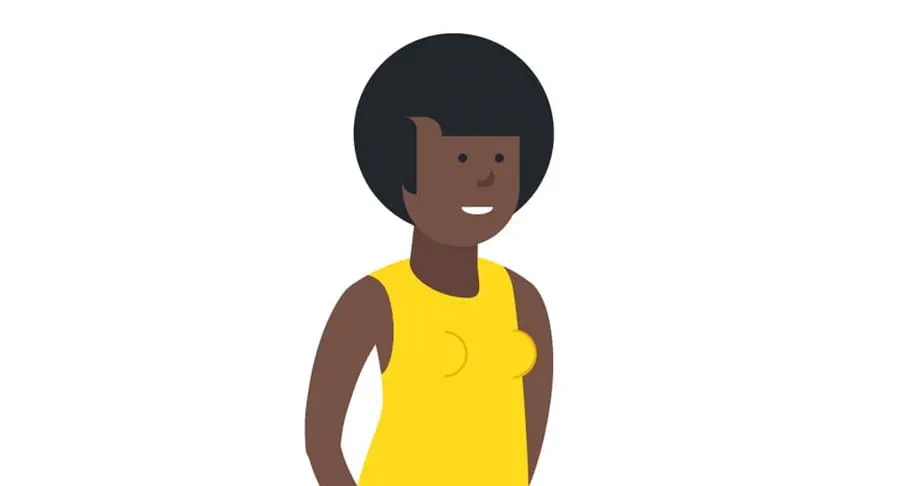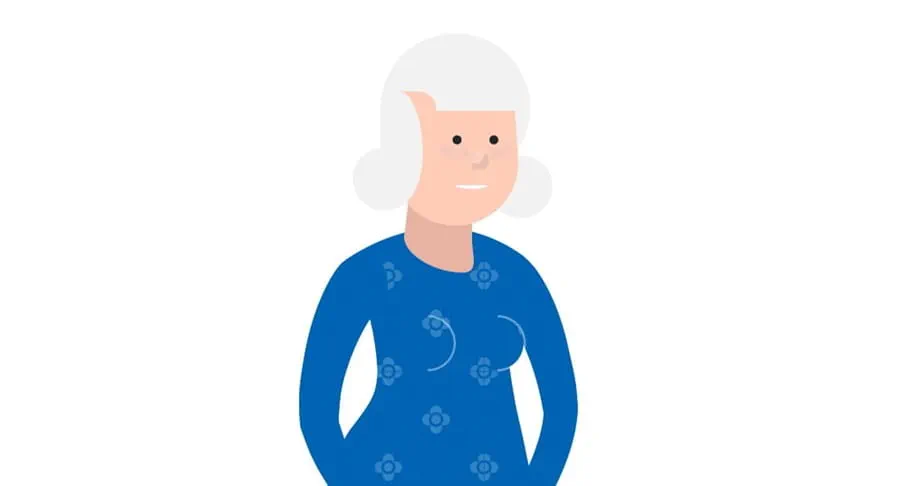When should I be screened for breast cancer?
Whatever your age, you should know what is normal for your breasts and tell your healthcare provider if you notice any changes. Once you reach a certain age, you can also go for screening mammography (a low-dose x-ray). Mammography is the most reliable method of finding breast cancer.
Our recommendation

If you are 40 to 74
Have a mammogram every 2 years.

If you are 75 or older
Talk to your healthcare provider about whether having a mammogram is right for you.
Our advocacy work
It's your decision
Women and trans, non-binary and gender-diverse people should be aware of the benefits and limitations of screening mammography based on their age and risks. Talk with your healthcare provider to help decide if screening mammography is right for you.
Your healthcare provider may also do a physical exam of your breasts (called a clinical breast examination) to check for signs of cancer.
Women and trans, non-binary and gender-diverse people who are at high risk for breast cancer may need to be screened more often and at an earlier age than those with average risk. Talk to your healthcare provider about your risk.
How do I know if I am at high risk for breast cancer?
Some women and trans, non-binary and gender-diverse people have a higher than average risk of developing breast cancer. You may be at a higher risk if you have:
- a strong family history of breast cancer
- certain gene mutations, such as the BRCA1 or BRCA2 mutation
- a personal history of lobular carcinoma in situ (LCIS), ductal carcinoma in situ (DCIS), invasive breast cancer or atypical hyperplasia
- had radiation therapy to the breast or chest
- dense breast tissue
Talk to your healthcare provider about your risk. If you are at higher than average risk, you may need a personal plan for screening. This may include:
- mammography at a younger age
- more frequent mammography
- ultrasound or magnetic resonance imaging (MRI)
Some provinces and territories have programs or protocols for those at high risk. The criteria for high risk varies by province and territory. Talk to your healthcare provider about which screening program is best for you and at what age you should start screening if you are at higher risk. We are also advocating for women and trans, non-binary and gender-diverse people at high risk to have fair and timely access to breast cancer screening, no matter where they live.
Your trusted source for accurate cancer information
With support from readers like you, we can continue to provide the highest quality cancer information for over 100 types of cancer.
We’re here to ensure easy access to accurate cancer information for you and the millions of people who visit this website every year. But we can’t do it alone.
Every donation helps fund reliable cancer information, compassionate support services and the most promising research. Please give today because every contribution counts. Thank you.
